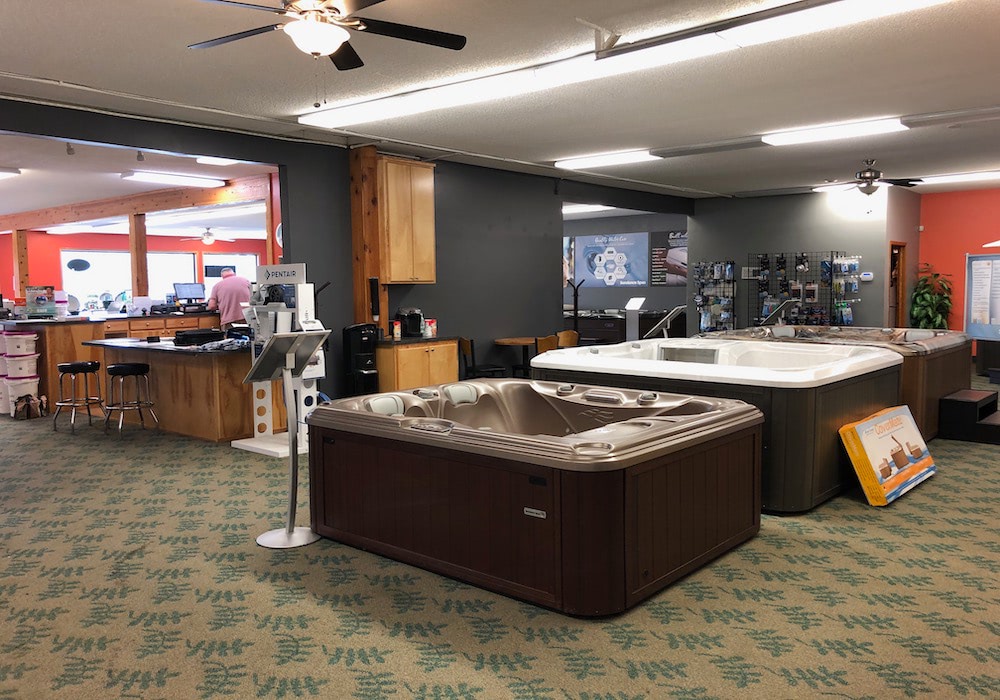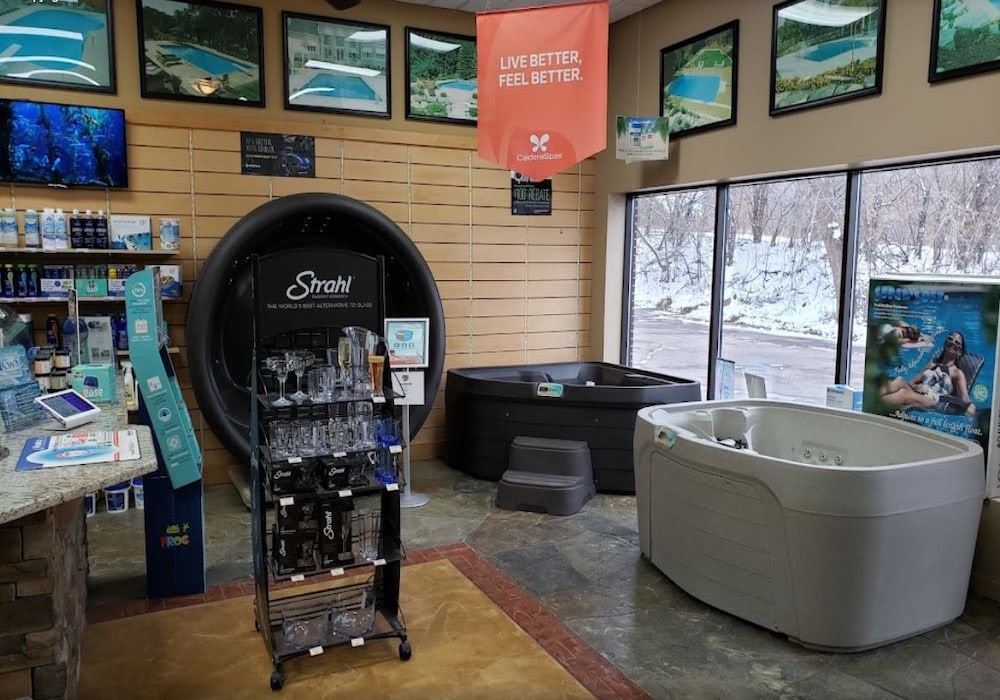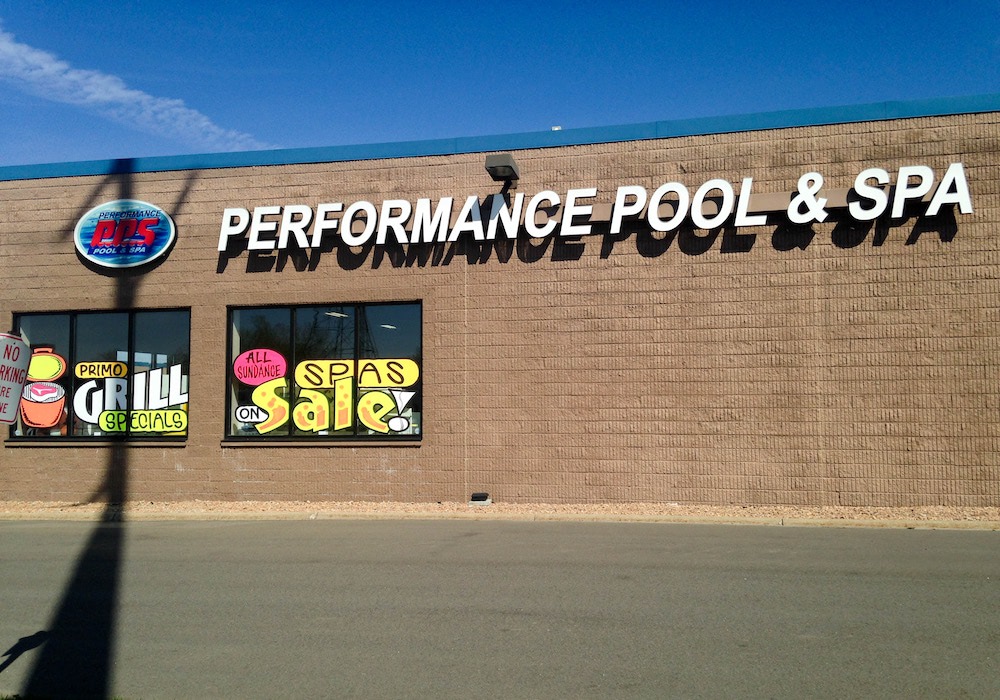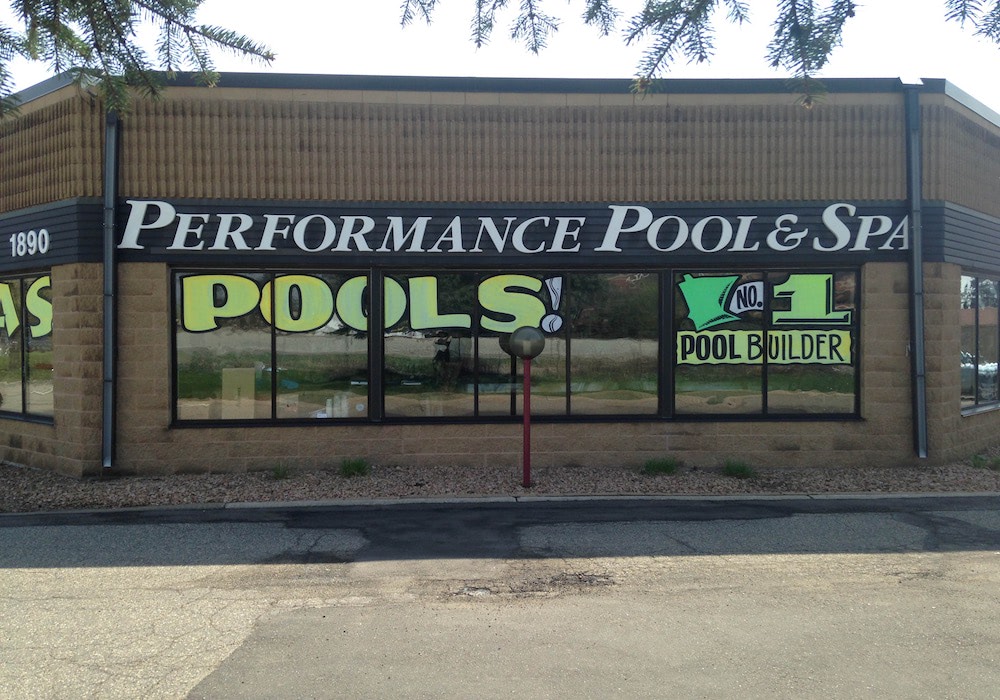Pool Filters: Cartridge Vs Sand
Posted: February 25, 2022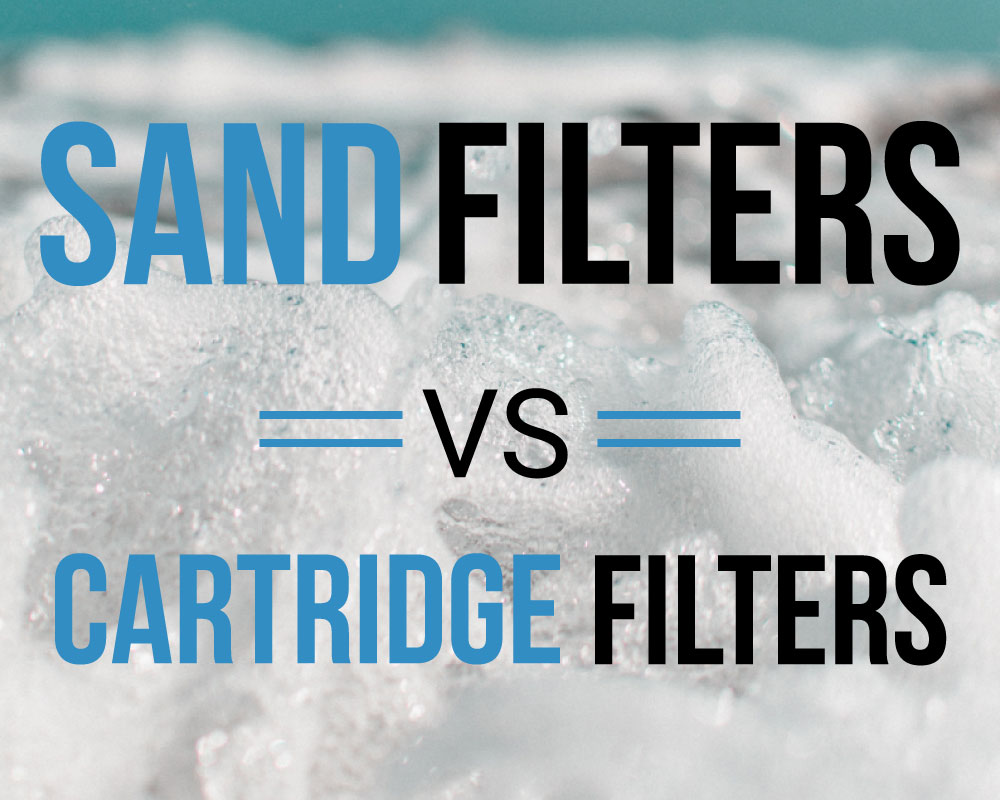
All filters keep your pool water clean, but have you wondered what the difference is between them? How do they actually work and what can they do? We know that when it comes to your in-ground or above ground pool, you want affordable and efficient pool equipment. The most popular pool filter types are cartridge filters and sand filters.
Sand filters are generally the most compact and affordable option to filter a pool. Sand filters use specially designed pool filter sand that removes the dirt and debris as water pushes through it. The cleaned water then flows back into the pool out through the bottom end of the filter. In a sand filter, back-washing occurs once water flows out through the waste line, instead of back into the pool, cleaning the filter. As the filter sand gets older and dirtier, the water flow pressure through the filter will decrease. This decrease in water flow pressure will in turn increase the pressure rate of the filter. This is a sign that it’s time to backwash the equipment. Generally, the sand filter should be replaced about every five to eight years, based on usage.
Cartridge filters can screen out twice as much dirt and debris as a sand filter. The larger filtration area allows the water to move through the cartridge and remove smaller particles. This makes maintenance much easier because there is no need for back-washing. This can save pool owners money by not having to constantly remove water and pool chemicals. All you need to do is remove the filter cartridge and wash it off or install a replacement cartridge. If this seems like a daunting task, this is a service we offer in our stores. These filters cut energy costs by using low pump pressure, but may have a higher upfront price. Since the pressure needed is lower, it can prolong the life of your pool pump.
A quality pool filter for your pool is key to creating and maintaining sanitary place for your loved ones to swim. Each style of filter (sand vs. cartridge) will come with it’s own set of pros and cons; it’s up to every homeowner to decide what might be best for them and their pool.
Click here to see step by step how to videos on cleaning each type of filter.






